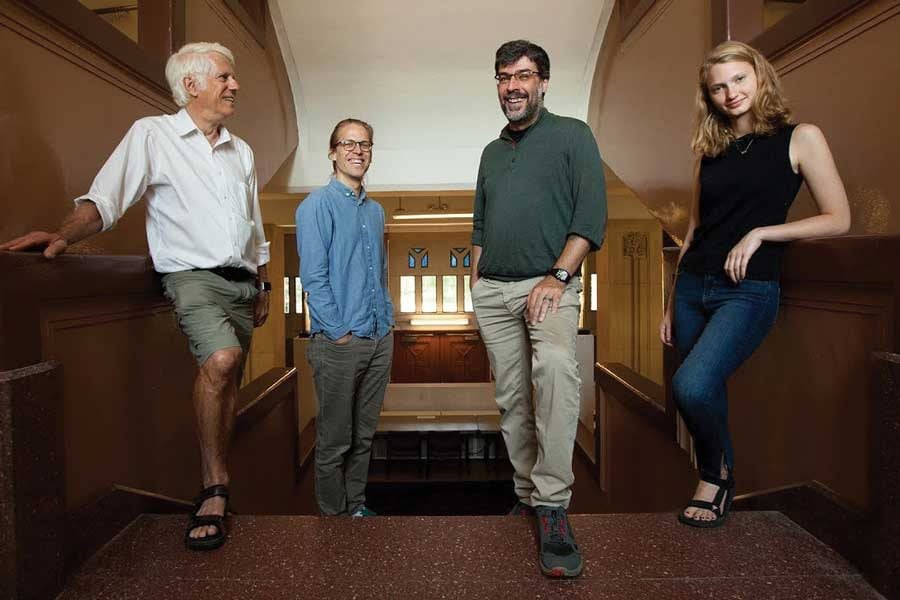You’re most likely average, study says
Northwestern researchers sifted through over 1.5 million personality respondents from four separate questionnaires to come up with four personality types. “Average” types were the most common, characterized by people showing higher levels of stress and extraversion and low levels of openness to change.
October 9, 2018
Northwestern researchers are challenging the norms of personality psychology with the development of new computational algorithms, finding at least four fluid personality “types”: average, reserved, role model and self-centered.
Personality has been a topic of psychological inquiry for centuries, yet psychologists continue to dispute the validity of set personality types. While other research groups have attempted to find a connection between known personality traits and possible types, according to a University news release, co-director of the Northwestern Institute on Complex Systems Luis Amaral and his team piloted a new approach by analyzing one of the largest sets of data in the field.
“The scientific consensus was that there are no personality types,” said Martin Gerlach, a postdoctoral fellow in Amaral’s lab at NU and the lead author on the study. “After (Amaral) suggested this topic I realized immediately the types of analysis we could do and the types of conclusions we could draw by the data we have available would allow us to go one step further at least, and I saw an opportunity there.”
The study, published in Nature Human Behaviour, utilized a clustering algorithm to sift through over 1.5 million personality respondents from four separate questionnaires. Researchers plotted each response on a multi-dimensional plane, representing the five best established dimensions of personality traits: neuroticism, openness, extraversion, agreeableness and conscientiousness.
According to the release, the algorithm first revealed around 16 personality clusters. Amaral and his team imposed additional constraints, narrowing the clusters down to four.
Psychology Prof. William Revelle and co-author of the study, has been a skeptic of personality types for over 50 years. However, after witnessing the computational steps his colleagues took, he said he was convinced the findings were valid.
“What they did — and I’ve been working with big data for a long time — was convincingly show me with their algorithms you could reliably find these ‘lumps in the batter,’ these increases in density,” Revelle said. “We’re finding that more people are in these four parts of space than you’d expect by chance, but they’re not concrete types — they’re more continuous.”
According to the article in Nature and Human Behaviour, the “lumps in the batter” were then classified: average, reserved, role model and self-centered.
According to the study, “average” types were the most common, characterized by people showing higher levels of stress and extraversion and low levels of openness to change. “Reserved” types are emotionally stable but not open to change or particularly extraverted. “Role-model” types are known as good leaders, dependable and receptive to new ideas. “Self-centered” types are extremely extraverted but lack openness, agreeableness and and conscientiousness..
Revelle and Gerlach both said the study takes a relatively new approach to analyzing big data, and they hope readers will appreciate their methods and replicate them throughout the field.
Gerlach said he also looks forward to seeing whether personality can reveal more about a person than their character traits, such as their ability to succeed at work, find happiness in marriage or shift personality altogether as they age.
“What we do find is that people can, in principle, be anywhere — so you can have any combination of personality traits, and what we find is that this is not completely random, and we want to figure out why,” Gerlach said.
Email: [email protected]
Twitter: @daisy_conant


